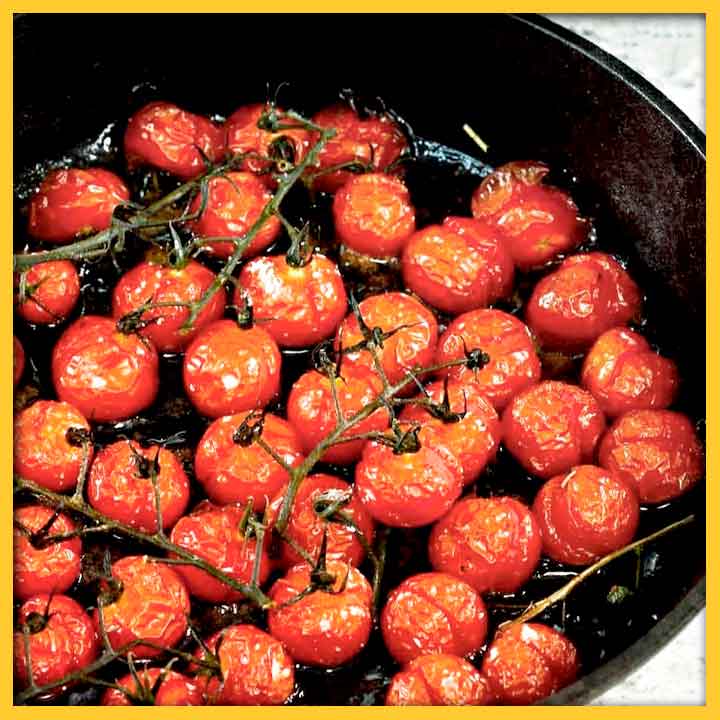SHARE:
…the tomato,
star of earth
recurrent and fertile star,
displays
its convolutions,
its canals,
its remarkable amplitude
and abundance,
no pit,
no husk,
no leaves or thorns,
the tomato offers
its gift
of fiery color
and cool completeness.
Ode to a Tomato by Pablo Neruda
1954
The poetry of Pablo Neruda is that of the everyday man. Neruda, the Chilean poet widely known for his love sonnets, war poems, and stanzas on the ever-changing nature of politics, also exalts the beauty of the mundane in his delectable odes to food. Neruda writes passionately about ideas, concepts and items that are both grand and minuscule, and particularly in his odes to food, his words pay homage to the beauty, memory and humanity of mankind.
Food is something that many people take for granted, representing as it does comfort, economics, love, identity, and memory. Specifically, his odes to food take commonplace items and magically transform them into transcendence. Onions are compared to a goddess and take on the beauty of a bird in flight. Artichokes become a knight in armor who serves his heart to those at the table. Oranges are exalted in their sweet bitterness as being like daylight. Wine is an allegory for lascivious velvet and purple feet, consumed in the passion of lovemaking. A large tuna in the marketplace is a dead monarch of the ocean and a pure and unflawed ship sailing in the abyss of the sea.
Readers almost find themselves in love with these glorious bites.
His Ode to a Tomato pays homage to a rather ordinary fruit. Tomatoes are beautiful, but we as humans become accustomed to having them perpetually available so their true loveliness is not usually appreciated. The tomato, made up of contrasts of fire in its color and coolness in its taste, is complete in and of itself. It represents perfection. Unlike a rose which has thorns, unlike a peach which has a pit, unlike corn which has a husk, and unlike a beet which has bitter skin, the tomato exists calmly and serenely unto itself with no external distractions. Neruda’s food odes push the reader into examining cuisine in the light of the divine. Seeing the tomato as an item of beauty and rarity allows us to appreciate it as though we are seeing it for the first time. The alchemy of how food is elucidated in Neruda’s ability to transform the most banal of items into objects of great beauty, as exemplified in the tomato’s description as shedding “its own light, benign majesty.”
Neruda’s poetry is that of magical realism in stanzas. What is striking about his poetry is that sense of mundane otherworldliness that it brings to language. This combination of the beautiful and the mundane can be seen as akin to the dichotomy of humanity. Human beings are capable of great and wondrous acts, and just as able to commit atrocities, and Neruda is able to brilliantly walk this line in his poetry because he himself embodies the dichotomy of the human. Modern readers tend to put him on a romantic pedestal because his love poetry is arguably more well-known; however, he was considered a callous and vile individual by many of his contemporaries. His daughter Malva Marina was born with hydrocephalus and died at age 9 in terrible poverty, having been abandoned by both Neruda and her mother. He also deeply loved his third wife, Matilde, to whom innumerable poems were dedicated, and it was this love that was as necessary and nourishing to him as food. His survival as a man depended on food for his body and his survival as a poet depended on the nourishment of Matilde in his life. It is this dichotomy that also makes us, as readers, relate so much to the depth of passion in Neruda’s odes because we all have the capacity for the wonderful and horrible within us.
No other poet manages to capture the gorgeousness and the comfort of food in the same way. The way he approaches food is universal in that he is writing about foods that are used in the vast majority of cultures worldwide. Salt, lemons, wine, artichokes, onions, oranges and tomatoes are common foodstuffs but with Neruda, they do not simply represent food. Food is a connector across society and culture but also represents comfort, familiarity, and memory. Neruda’s food odes pay homage to the aliment itself, to humanize and personify food, and to honor the simple pleasures of life itself. In exalting the beauty and comfort of food in his odes, Neruda pays homage to the human race and the collective memory of humanity.
PASA POR AQUÍ
ADDITIONAL BLOG ARTICLES

THE THIRTEENTH AMENDMENT THAT NEVER WAS
By Brandon Johnson
The 13th Amendment, guaranteeing the abolition of chattel slavery in the United States, is one of the crown jewels of the American Constitution.

LIBRARIES AS FOUNDATIONS OF DEMOCRACY: UPHOLDING THE FREEDOM TO LEARN
By Val Nye
Proponents of intellectual freedom and supporters of libraries should plan to join in the various celebrations happening in New Mexico to honor the work communities and library workers do to retain intellectual freedom rights for all Americans.

SPAIN AND THE U.S. WAR OF INDEPENDENCE
By Eloy García
As we approach the U.S. Semiquincentennial of July 4, 2026 I think it is important that we in New Mexico reflect on the influence the Spanish Empire had on ensuring the success of the British colonist “War of Independence.”
SHARE:
DISCLAIMER:
Any views, findings, conclusions or recommendations expressed in this blog post/article does not necessarily represent those of the New Mexico Humanities Council or the National Endowment for the Humanities.
ABOUT THE AUTHOR:

VANESSA BACA
Vanessa Baca is a cook, writer, public relations professional, blogger, and podcaster. Her food blog Food In Books reviews various works of literature and recreates the food references within these books. www.foodinbooks.com. She is the co-host and co-producer of two podcasts. Fear Feasts is a podcast that analyzes the connection between food and horror in film and literature. www.anchor.fm/fearfeastspodcast. Sharing The Flavor is a podcast that is dedicated to analyzing the history of regional cuisine in many countries and recreates traditional recipes. Her one-man podcast Cooking The Books showcases literary food through a variety of guests, including writers, chefs, cookbook authors and food influencers. www.anchor.fm/cookingthebooks. A proud Nuevomexicana, she formerly lived in Spain, traveled extensively, and has taken cooking lessons in several countries.

